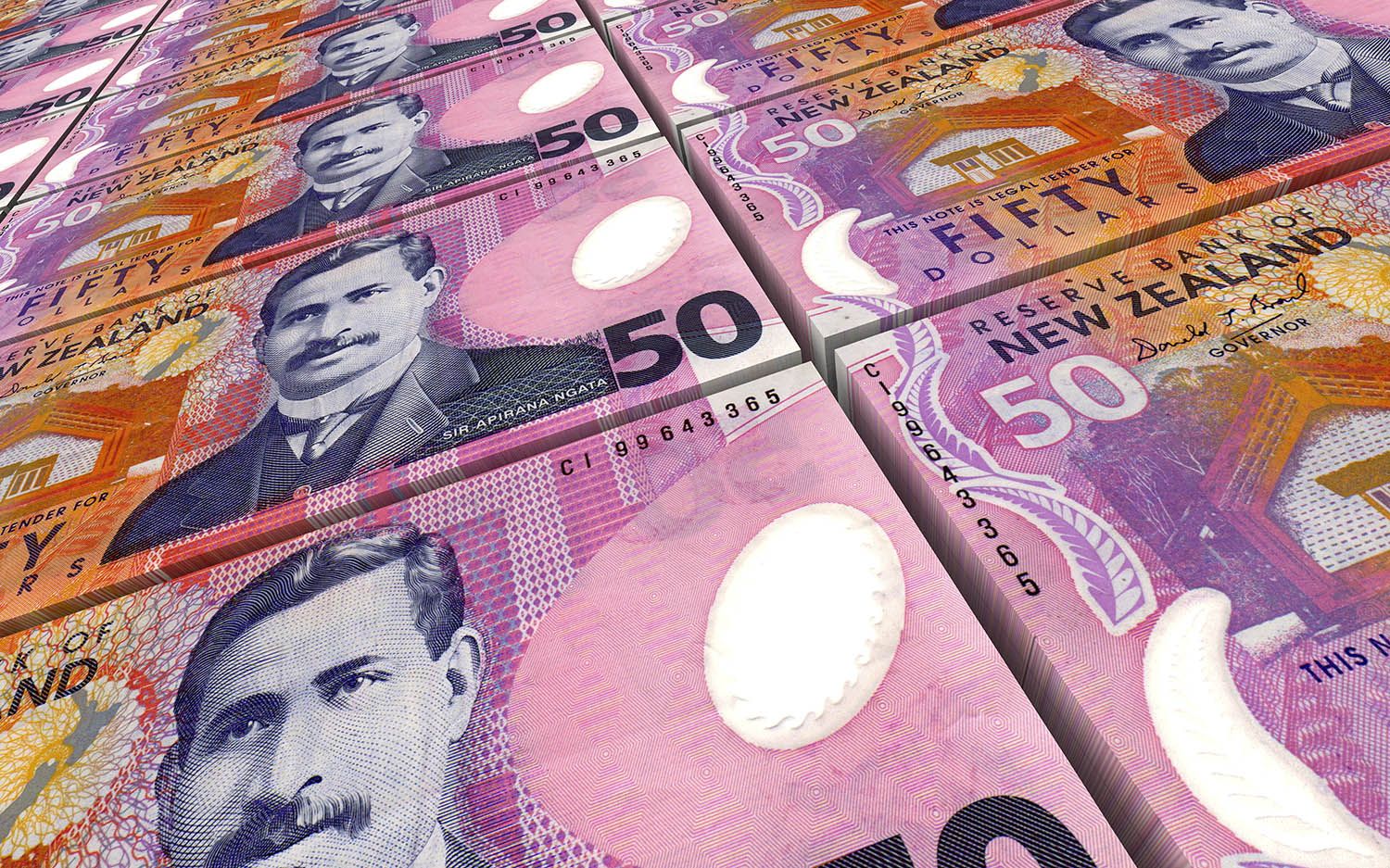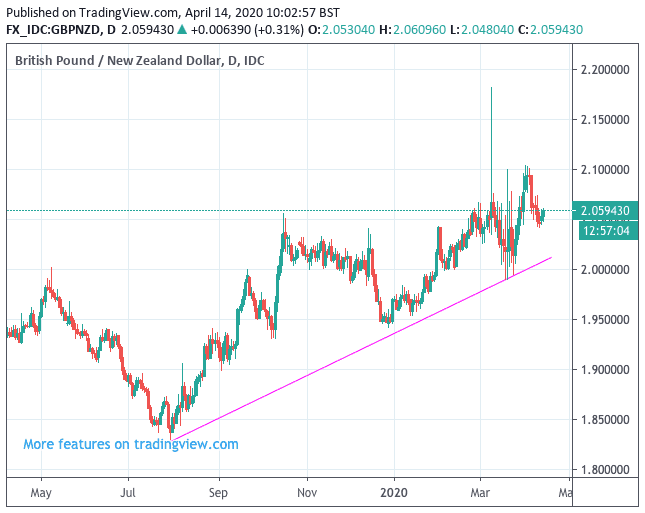New Zealand Dollar Extends 2-Week Rally vs. U.S. Dollar thanks to Chinese Data, but Remains Biased to Further Losses Against the Pound
- NZD benefits from Chinese trade data
- 2-week rally vs. USD intact
- However, GBP/NZD grind higher remains intact
- Investment bank GBP/NZD consensus forecasts now available for download at Global Reach

Image © Adobe Stock
- GBP/NZD market rate at time of publication: 2.0599
- Bank transfer rates (indicative): 1.9873-2.0017
- FX specialist rates (indicative): 1.9969-2.0409 >> More information
The New Zealand Dollar extended a two-week recovery against the U.S. Dollar in the wake of the release of some better-than-expected trade data out of China, however the currency was unable to make gains against an appreciating British Pound which appears to be benefiting from improved investor appetite and news that Prime Minister Boris Johnson has been released from hospital.
The New Zealand Dollar's gains against the U.S. Dollar saw NZD/USD quote at 0.61 on Tuesday, an 11% improvement from the 0.5470 low that was triggered on March 19.
"Fed programmes to improve USD liquidity, higher oil prices, a slowing in new coronavirus cases and better than expected Chinese trade data for March all supported commodity currencies such as AUD, NZD and CAD," says Kim Mundy, a foreign exchange strategist at CBA.
China is New Zealand's main export destination, ensuring the fortunes of the world's second largest economy are key to New Zealand's foreign exchange earning potential and Chinese trade is therefore a fundamental pillar for the NZ Dollar's valuation.
The currency slumped at the start of the year when the coronavirus crisis shut down China's economy, confirming the New Zealand Dollar to be a proxy for investors looking to gain exposure to Asia. But with China having exited its lockdown and starting to recover, it is understandable that the New Zealand Dollar would benefit.
Sentiment towards China improved Tuesday on the back of some better-than-expected trade numbers: Exports (YoY) for March read at -6.6%, which is better than the -14.0% markets were expecting and an improvement on February's -17.2%.
Imports (YoY) for March stood at -0.9%, a beat on the -9.5% expected and a great deal better than February's -4.0%.
The overall Trade Balance in USD term for March read at 19.90B, better than the 18.55B expected and the -7.09B reported in February.
"China’s announcement of stronger than expected trade numbers have pumped up markets to start the week positively. The data suggests that while we haven’t seen the full damage of a closed Europe and US, intra-Asian trade has remained strong with a faster recovery by some economies allowing trade routes to remain relatively open.," says Jeremy Thomson-Cook, Chief Economist at Equals.
The New Zealand Dollar's gains against the U.S. Dollar were however not reflected in the Pound-to-New Zealand Dollar exchange rate which maintains a steady upside bias.
GBP/NZD is quoted at 2.0604, up from last week's low of 2.0426 but still below the peak of 2.10 reached on April 01. Regardless, the trend since August 2019 has been higher, and technical studies suggest there is very little to question the ongoing grind higher in Sterling.
A fading of Brexit fears is the key long-term driver, but of late the improvement in global investor sentiment has aided Sterling as much as it has aided the New Zealand Dollar.
Furthermore, the British Pound rose half a percent to record its highest levels in a month against the Euro and U.S. Dollar and other major currencies on Monday, a move that coincided with positive domestic news concerning the health of Prime Minister Boris Johnson.
Johnson was over the weekend released from St. Thomas Hospital in London owing to a successful treatment for his Covid-19 infection that at one stage saw his odds of surviving down to 50-50.
Markets had last week took note of news of the worsening in Johnson's health, with the Pound losing ground on Tuesday night when it was announced the Prime Minister had been admitted to the hospital's ICU unit.
Johnson's serious condition last week injected a fresh dose of uncertainty into the UK's political-economic matrix, and as recent years have shown the Pound tends to respond poorly to such uncertainty. Therefore, news that the country's leader has been released from hospital to recuperate at his Chequers residence will likely impart some support to the Pound's valuation.





